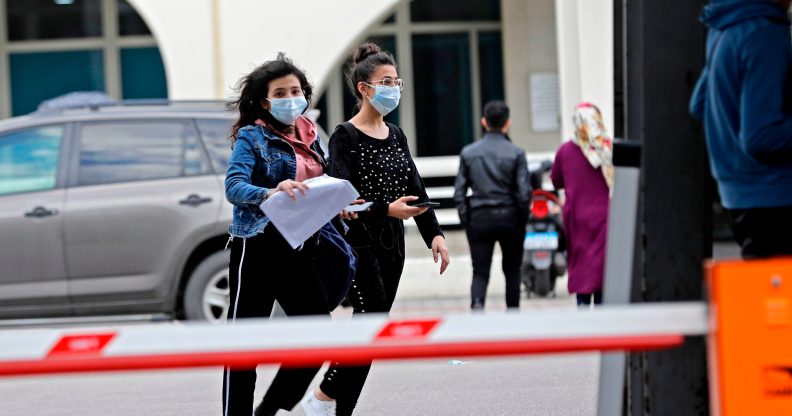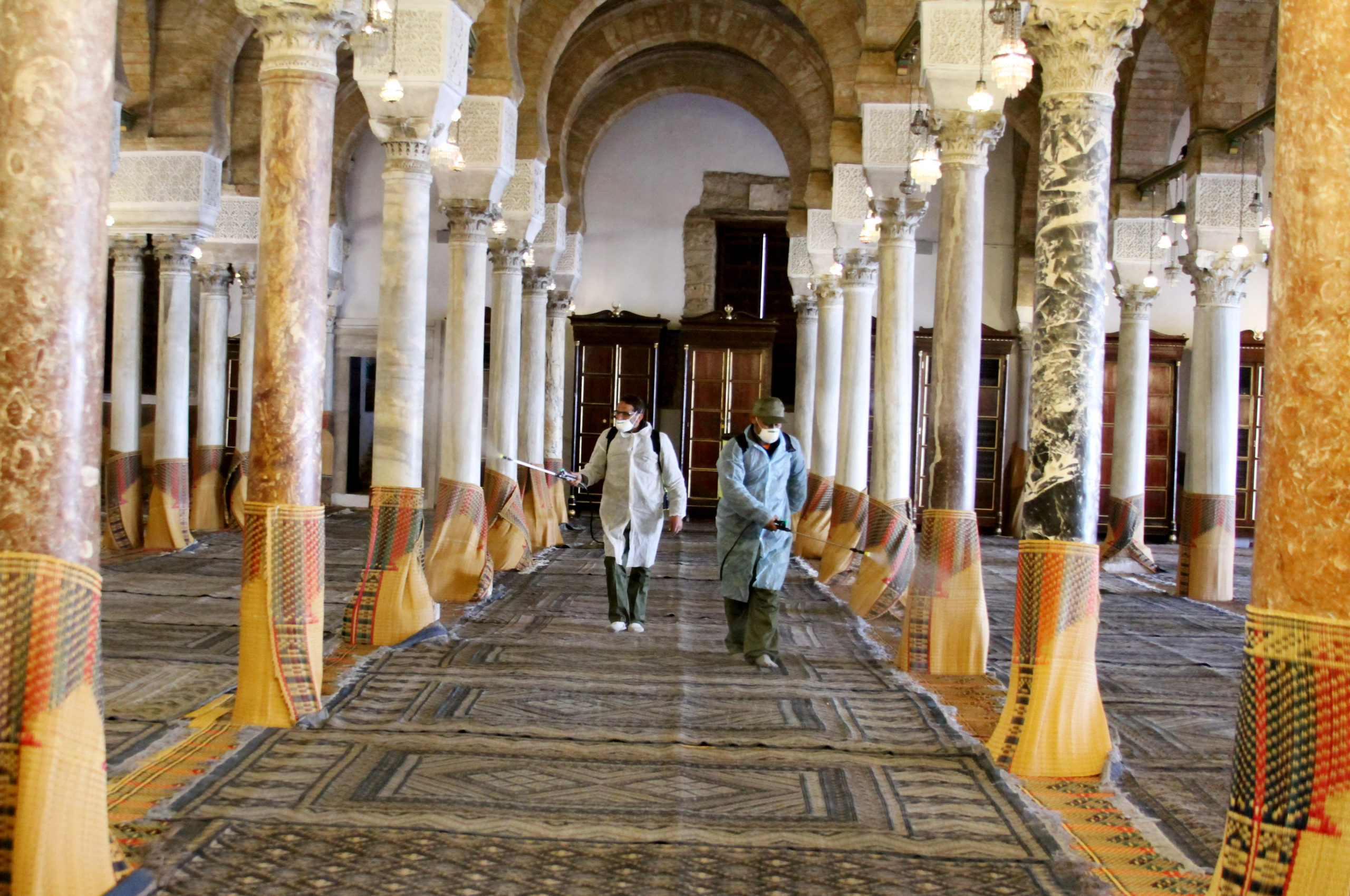Coronavirus lockdown is trapping queer people with abusive families in the Middle East

Women wearing face masks for coronavirus in the Lebanese capital of Beirut (JOSEPH EID/AFP/Getty)
Coronavirus lockdowns in the Middle East are trapping LGBT+ people with abusive families, advocacy groups have warned.
Coronavirus is hitting the Middle East hard, and as the death toll passes 1,000 in Iran alone, governments in Egypt, Lebanon, Israel, Saudi Arabia, Qatar, Kuwait, Bahrain, Iraq and Algeria have all implemented emergency restrictions.
While it’s hoped these measures will be effective in slowing the spread of the virus, they’re disastrous for many LGBT+ people who are being forced to remain in unsafe home environments.
The Thomson Reuters Foundation heard that many LGBT+ advocacy groups in the region are now having to step up their support for those struggling amid the coronavirus lockdowns.
“The environment we live in unfortunately can be aggressive toward LGBT+ people,” said Omar Al Khatib of the Palestinian LGBT+ group alQaws, which is based in Jerusalem where LGBT+ people often live with families that do not accept them.
“Staying at home can eliminate their access to private spaces and increase bullying,” he told Reuters.
In Palestine, the authorities have closed places of worship and social spaces that usually offer some respite, like coffee shops and clubs, meaning that escaping the pressure at home is no longer an option.
This pressure has been heightened by a nighttime curfew that’s been implemented in the city of Bethlehem.
But with business closures and money worries on the rise, the situation isn’t much better for many LGBT+ people living alone – often because they’ve been rejected by their families.
“The state of quarantine creates a feeling of isolation and fear, and that they are completely on their own so it’s not safe for them,” said Khatib.

Officials disinfecting the Al-Zaytuna Mosque in Tunisia as protection against the coronavirus (Jdidi Wassim/Echoes Wire/Barcroft Media/Getty)
Elsewhere in Lebanon, where 120 coronavirus cases have been recorded, the advocacy group Proud Lebanon has organised a task force of volunteers to deliver medication to people with HIV who cannot or will not leave their homes.
“They are afraid to come take their medication,” the organisation’s director Bertho Makso, explained to Reuters. “They are afraid there will be shortage of medication and they can’t go out because there is no public transport.”
And in Tunisia, where authorities have suspended prayers at mosques, closed cafes in the afternoons and banned all cultural, sports and economic gatherings, the LGBT+ group Mawjoudin has reported a spike in calls to its counselling hotline.
“They have been expressing their frustration,” said one of Mawjoudin’s activists. “When they go out alone, they have the freedom to not lie anymore to their families and now they don’t have it.”

